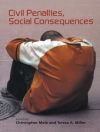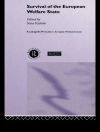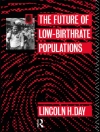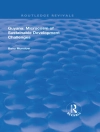`An accessible, clearly explained review of difficult concepts within this arena as well as relevant debates. Its strengths are in outlining possible considerations that need to be taken into account when making methodological choices. It also clearly explains how these choices impact knowledge production. This book would undoubtedly be of considerable use to anyone seeking to understand and get to grips with feminist methodological issues′ – Feminism and Psychology
Who would be a feminist now? Contemporary ′political realism′ suggests that the essentials of the battle have already been won, and the current generation of women entering University is used to seeing feminism presented as ′old fashioned′, ′extreme′ and ′unrealistic′.
Challenging such assumptions, this important new book argues for the value of empirical investigations of gendered life, and brings together the theoretical, political and practical aspects of feminist methodology.
Feminist Methodology
– demonstrates how feminist approaches to methodology engage with debates in western philosophy to raise critical questions about knowledge production
– shows that feminist methodology has a distinctive place in social research
– guides the reader through the terrain of feminist methodology and clarifies how feminists can claim knowledge of gendered social existence
– connects abstract issues of theory with issues in fieldwork practice.
This timely and accessible book will be an essential resource for students in women′s studies, gender studies, sociology, cultural studies, social anthropology and feminist psychology.
Jadual kandungan
Introduction
PART ONE: FEMINISM′S ENLIGHTENMENT LEGACY AND ITS CONTRADICTIONS
Reason, Science and Progress
Feminism′s Enlightenment Inheritance
Can Feminists Tell the Truth? Challenges of Scientific Method
From Truth/Reality to Knowledge/Power
Taking a Feminist Standpoint
PART TWO: FREEDOM, FRAGMENTATION AND RESISTANCE
Escape from Epistemology? The Impact of Postmodern Thought on Feminist Methodology
Researching `Others′
Feminist Methodology and the Politics of Difference
Knowledge, Experience and Reality
Justifying Feminist Connections
PART THREE: MEETING CHALLENGES, MAKING CHOICES
Choices and Decisions
Doing a Feminist Research Project
Conclusion
Mengenai Pengarang
I have research interests in youth, education, families, intimacy, feminist theory and methodology, and qualitative longitudinal methods, and publish in these areas. Currently Co-Director of Timescapes, an ESRC funded 5 year qualitative longitudinal study with seven projects covering the life course located in five UK universities (Leeds (lead, Director Bren Neale), LSBU, Cardiff, Edinburgh and The Open University). Also have an archiving project in this study with colleagues, Making the Long View, archiving data from a 10 year qualitative longitudinal study of youth transitions, Inventing Adulthoods. See too www.timescapes.leeds.ac.uk; www.lsbu.ac.uk/inventingadulthoods.












